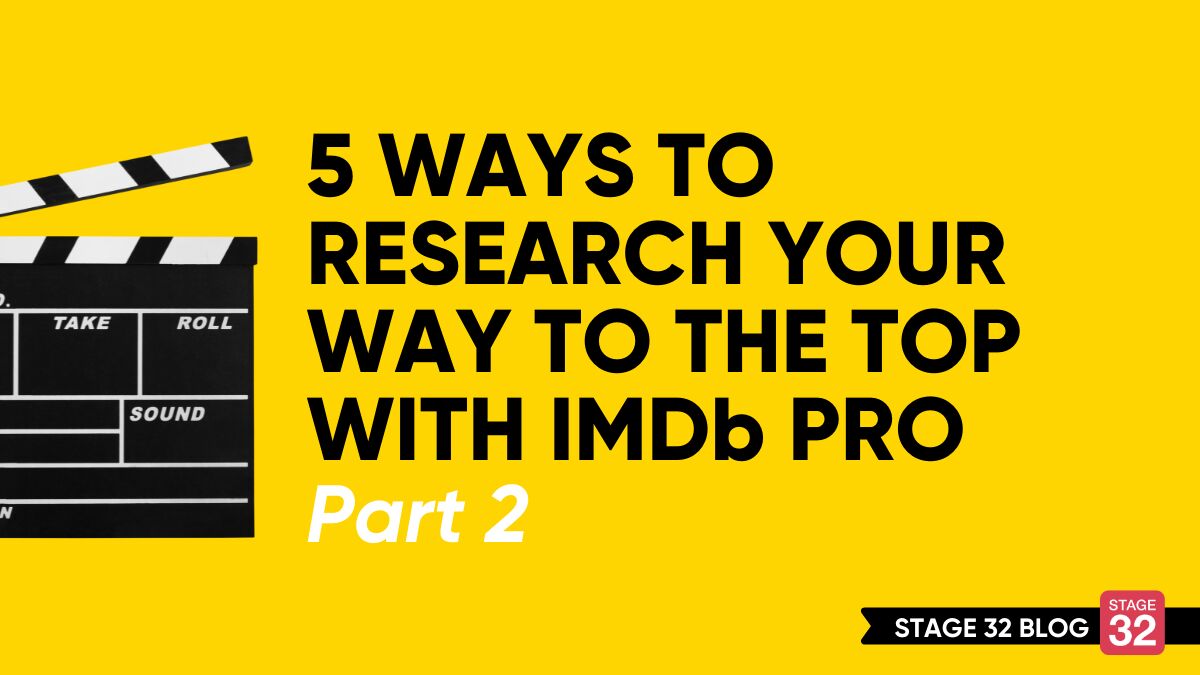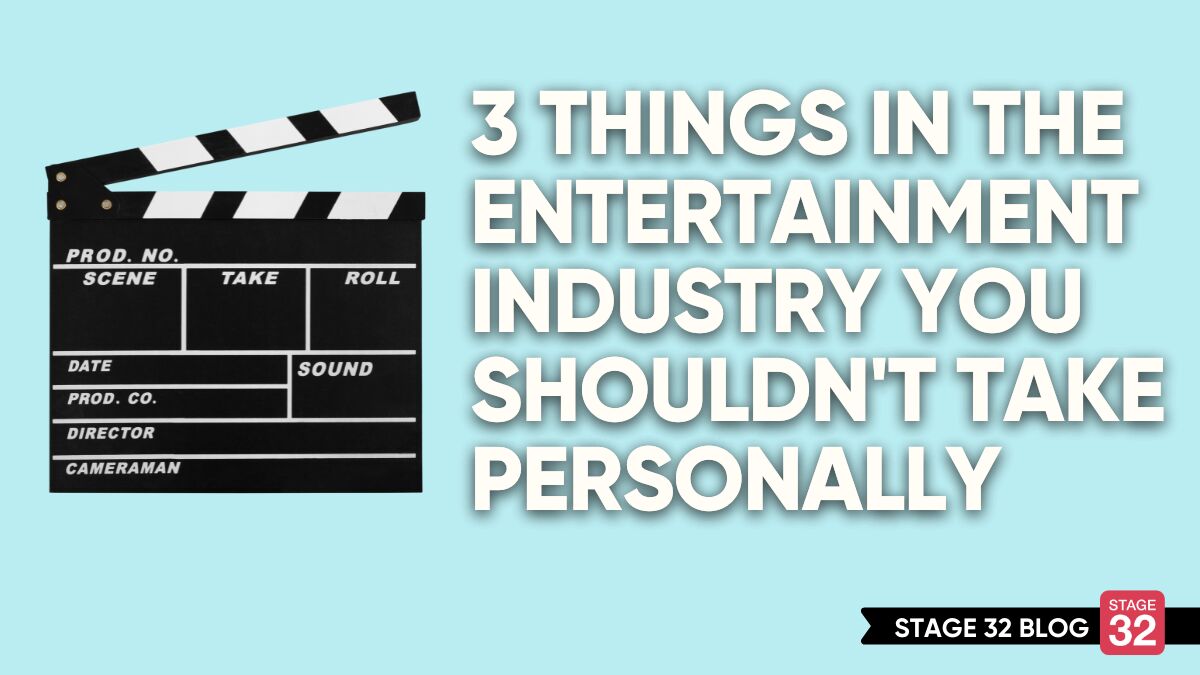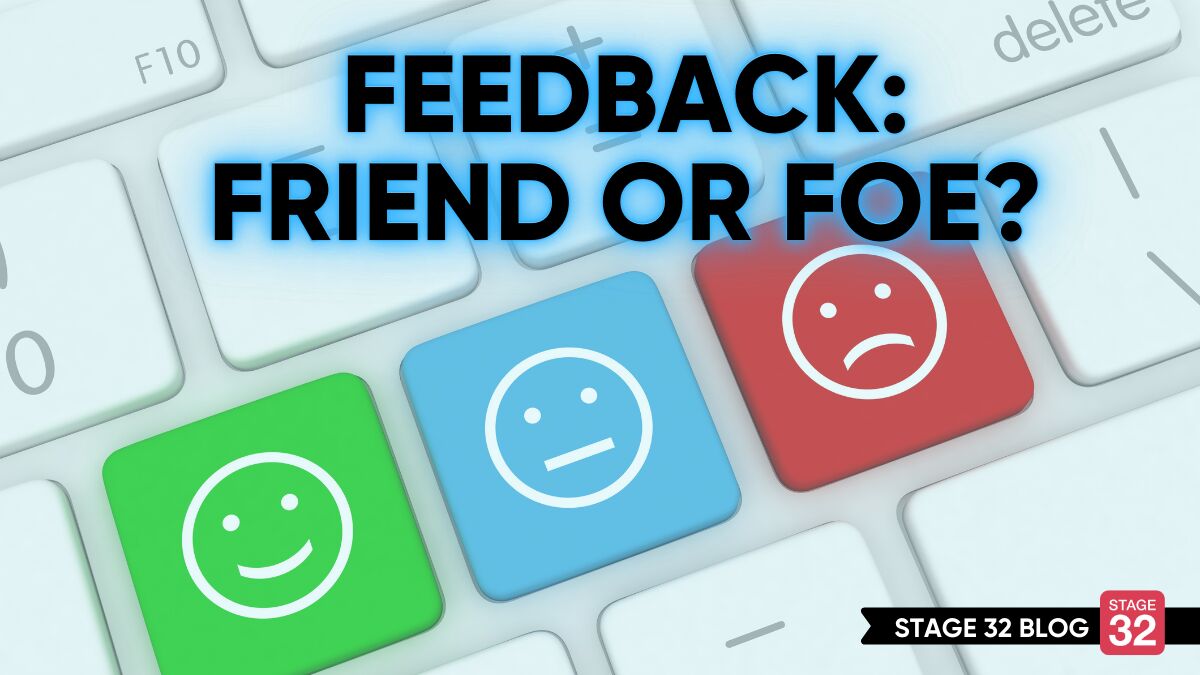Feedback: Friend or Foe?
At one of my many day jobs, I worked in communications for one of the world’s largest banks. Not my dream job, but I had an office, so that was cool. When I wasn’t pasting press clippings into photo albums with solid gold covers for a former chairman (a real thing that happened), I got to work a fair bit with the CEO. It’s de rigueur to demonize bankers, but this guy was actually very decent.
I was with him on one occasion when he gave a speech to employees. He told a story about how he regularly received what he called, “I hate you and hope you go to hell” letters.
One particular letter was from a customer who was having trouble with their mortgage. On their behalf, the CEO called the processing office and asked the case manager to fix the mistake. The case manager informed the CEO that they would have to check with their boss before they could make the change. Slightly incredulous, the CEO responded, “I’m the chief executive officer of the bank… which boss, exactly, do you think you need to check with?” The case manager fixed the mistake. And the CEO learned his bank had too much red tape.
Why do I tell this particular story?

Facing Feedback
No matter what field you’re in, you’re going to get feedback, whether you want it or not. It could be in the simple form of two powerful words “yes” or “no.” It could be in the form of sales made or lost. It could be in the form of castings, successful job applications, promotions or box office numbers. In this case, it was “I hate you and hope you got to hell” letters.
The CEO could have ignored these missives or delegated them to an underling. But he viewed the letters as a chance to find out what was really going on in the organization - what customers were experiencing - unfiltered. No subordinates sugar-coating for him, no assistants shielding him.
Understanding how to solicit and use feedback is a critical part of success.
This CEO knew the letters had value… that what people wrote about him, no matter how personally they attacked him, wasn’t about him, it was about the business. He was wise enough to disregard the emotion in the letters and find out what needed fixing. He took what was useful in the feedback and let the rest go.
This is an important skill.
It can be scary to ask for feedback. The last thing you want is to have your confidence crushed. If you’re brave enough to create something or do something new, that alone deserves praise!
But the fact is it’s nearly impossible for something you create (a script, a sculpture, an audition, a company, a better mousetrap) to reach its full potential without objective feedback. Even scientists have their work “peer reviewed” to check for accuracy.
You will miss things in your own work because you’ve looked at it so many times and are too close and too familiar. There will be ideas you’ve thought you’ve expressed, but they’re still actually only in your mind. There will be aspects you’ve not communicated well.
Case in point, I paid for a feedback session on a draft of one of my screenplays in which I referenced Victor Frankl’s Man’s Search for Meaning. What I intended to write was that Frankl believed he survived concentration camps during the Holocaust because he had a purpose and the hope that he would fulfill it - he had a reason for living. But the reader thought I was blaming the victims for not surviving - that it was somehow their fault because they didn’t have a strong enough raison d’etre.
I would never want anyone to think that’s what I meant and never would have read my writing in that way. It took an objective and fresh set of eyes to point out the possible misinterpretation of my words and it took only a few quick edits to my sentences to ensure they didn’t read that way to anyone else. Excellent feedback indeed!
It’s important, though, to know when you’re actually ready for feedback. This can be a process.

Feedback Process
Ideas, like flowers, are delicate and easily killed off if subjected to the wrong conditions too early in their development. They need a chance to form strong roots and grow sturdy before they face harsh conditions.
When soliciting feedback on an early draft, initial concept or when I've just started learning something new, I always bear in mind the words of W.B. Yeats: “But I, being poor, have only my dreams; I have spread my dreams under your feet; Tread softly because you tread on my dreams.”
I tend not to ask professionals for feedback on early drafts. Instead, after writing that satisfying final line - The End - I find my biggest fans and closest friends. Starting with myself.
As a writer, the first thing I do is read over my work several times aloud to myself. Reading work out loud (or using a computer’s voice function to have it read to me) is a fantastic way to find typos and grammatical errors, thoughts that don’t quite mesh and sentences that aren’t smooth. If I trip over something, I know I need to change it. This is also a good way to get rid of the superfluous.
Once I’m satisfied it’s as clean a draft as I can make it, then I ask friends to look it over. I actually leave my husband till last - no sense putting him in an awkward position (made that mistake once; live and learn!). Instead, I find friends who understand what I’m doing and know how hard it is to hear “this didn’t quite work” or “I was confused by”... They put it gently and that’s just what I need. These kinds of friends are easy to find on Stage 32 - we’re all in this together and eager to help each other!
After I’ve had two or three “gentle” readers, then I start looking for professionals. Again, Stage 32 has outstanding resources and if you aren’t certain who to ask, writerhelp@stage32.com will suggest the best match for your story. After some professional feedback, my work is usually in pretty good shape…
While I’ve focused on my process as a writer, these steps work for most fields:
- After you finish, refine. On your own. Then refine and refine… and refine.
- Find a few supportive pals to give you “gentle” feedback. People who won’t come down hard and crush a seed before it’s had time to germinate. You want people who will cheer you on, but also give you some direction on how to make your work the best it can be.
- Find someone tough, someone who knows the world you want to be in, someone who can give you an honest assessment of where you are.

Critique or Criticism
In a Masters degree program for literature, I found it odd that my fellow students spent much of their time finding fault with the greatest books ever written. To me, a better exercise, especially for aspiring writers, would be to determine why these books were still read centuries later and what we could emulate in them.
But many people confuse critique and criticism.
An effective critique will comment upon what's best in a work - and there’s always something good to be found. It will also identify specific examples of what could be improved - this is constructive criticism. Not vague and generic comments, but page numbers with character names or plot points and reasons for the suggested change.
I’ve paid for a lot of feedback on my work and almost all of it has been exceptionally helpful. This doesn't mean everyone loved my writing, but those who didn’t still offered ideas on how I could make it better. I didn’t feel bad and I came away with something I could work on.
But beware: not everyone offering feedback understands their role. If you happen upon someone who isn’t great at feedback, think like the CEO - take what you can and let the rest go. It’s never personal. You can always get better and succeed.
I once sat through a call with someone who told me I was “neither talented nor experienced enough to write the story” I’d chosen. Ouch. That’s not constructive criticism.
I won’t lie, I was stifling tears before the call ended. It wasn’t fun. But there will be harsh critics out there. When you find them, you have to make a decision:
- Let them stop you. (NOPE!!!!)
- Ignore them completely. (Maybe…)
- Find something useful in what they said and let the rest go. (Ideally.)
I let the hurt recede and after a few weeks when I was thinking of reworking my story anyway, I recalled that the consultant didn’t like the role of a therapist in the script. He said he’d spent a lot of time in therapy (no comment) and had never seen one act as my character did. Fair enough. When I was ready to write a new draft of the story, I cut the therapist’s role significantly, admitting that I have not spent a great deal of time in therapy and it wasn’t essential to the story, so it wasn’t worth doing the research to make it more accurate.
No one’s perfect and sometimes people say or do the wrong thing when they’re trying to help. If you can find something valid in criticism you receive, apply it. But don’t get downhearted about it.
Creating is subjective. Not everyone will like everything. Some of my favorite movies have low Rotten Tomato scores. And conversely, I haven’t liked some of the biggest hits. If someone tells you your project isn’t good, keep working, keep improving, and keep looking for someone else who will believe in it as much as you do!

It’s Your Work
My 12-year-old son is an actor. I used to choose for him which take to send to casting for a self-tape audition. Now, I encourage him to choose. I want him to know that he can disagree with my feedback if he likes the way he did a particular scene. It’s his performance. His work.
Feedback helps us clarify our vision. Sometimes we are given a suggestion and it resonates; we can see how it will improve our work. But sometimes, someone offers an idea or claims they don’t like something and we viscerally disagree. That’s good too - stand by the work and believe in yourself.
These are our idea babies and we love them. We want everyone to love them. And it’s okay to feel bad when someone doesn’t think they’re as perfect as we do. Give yourself time to recover, take a few deep breaths, then evaluate how valid the criticism might be. Be honest with yourself and be grateful to anyone who takes the time to help you make your work better.
The more you reach out for feedback, the easier it gets to receive it. You realize how many differing opinions there are and you figure out whose opinion you value. It doesn’t matter how good you get, whether or not you’re the best in the world, you can always find ways to improve.
Hopefully, you’ll never receive an “I hate you and hope you go to hell” letter - that’s a hard place to find a useful nugget of feedback. However, even in those letters, there’s something useful. Seek it out and see how much better your work becomes.
Ultimately, it’s your creation. You get to decide which feedback to take. Don’t allow too many cooks to spoil the work. Trust yourself. And be proud that you’re brave enough to try.
About Meghan Thompson

Meghan Thompson’s passion for writing began under the mentorship of journalist James Fallows for whom she worked as a researcher on his book Breaking the News, How the Media Undermines Democracy and at U.S. News and World Report.
After studying government and history at Cornell University, she worked on political campaigns, in the Senate, for the current Irish Prime Minister, and most recently as a lobbyist for healthy homes in Westminster. She had a brief interlude providing political research to Wall Street and also as Greg Louganis’s manager. But mostly she’s worked in communications for Fortune 100 companies and now consults for startups.
No matter her day job, writing has always been her passion. She’s penned several novels and a benefit of lockdown was that it gave her time (finally) to learn how to write a screenplay.
Her pilot for a series about Eleanor of Aquitaine, A LADY AMONG LIONS, has placed in a number of competitions, as has her feature METTLE about Olympic skier and decorated RAF fighter pilot Roger Cruickshank.
Previous Stage 32 blogs by Meghan:
Three Lessons I've Learned from Olympians
Let's hear your thoughts in the comments below!
Got an idea for a post? Or have you collaborated with Stage 32 members to create a project? We'd love to hear about it. Email Taylor at taylor@stage32.com and let's get your post published!
Please help support your fellow Stage 32ers by sharing this on social. Check out the social media buttons at the top to share on Instagram @stage32 Twitter @stage32 Facebook @stage32 and LinkedIn @stage-32
Take Stage 32 with you! Download the Stage 32 app for iOS here. Android User? Click here for the Stage 32 Android App!
| 5 Ways Research Your Way to the Top with IMDb Pro - Part 2 |
| Three Things in the Entertainment Industry You Shouldn’t Take Personally |
Search Stage 32 Blog
There are now 4040 blog posts for you to enjoy. Search them all by tags below.
Acting, Advice, Cinematography, Coffee & Content, Composing, Contests, Distribution, Featured, Filmmaking, Financing, Inspirational, Networking, Producing, Screenwriting, Success Stories, Tips, Trending,Relevant Tags
Recommended Articles

Don't Let the Momentum of November Write Club Die: How to Stay Active Into 2026 & Beyond!

Insider Intel: 2026 Predictions

7 Life Hacks For Creatives

Stage 32 Certification Featured In IndieWire!
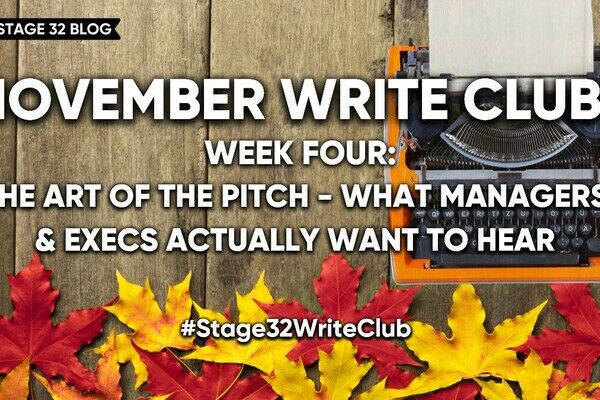
November Write Club Week 4: The Art of the Pitch- What Managers & Execs Actually Want to Hear

Find Your Footing on Stage 32: Join Our December Community Open House

Stage 32 Featured at the 43rd Torino Film Festival!
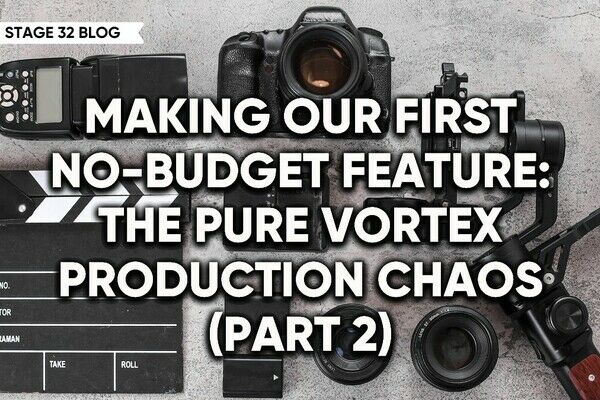
Making Our First No-Budget Feature: The Pure Vortex Production Chaos (Part 2)

State of the Industry 2026 Now On-Demand: RB & Geoff Break Down What’s Next for Writers!



